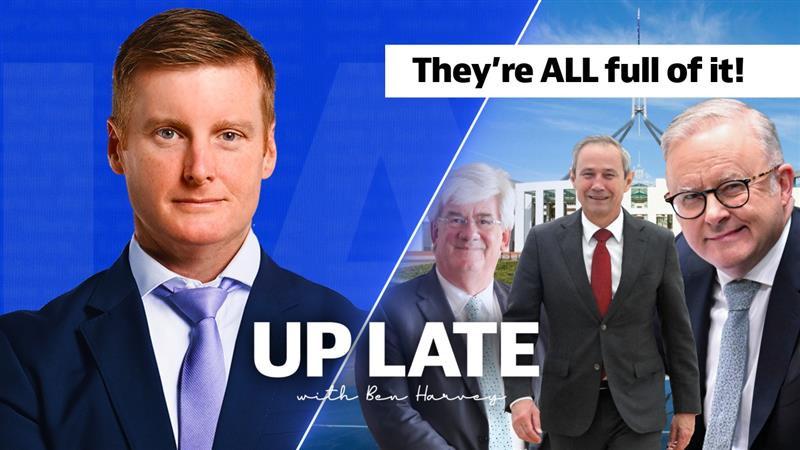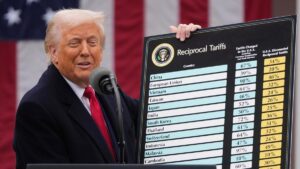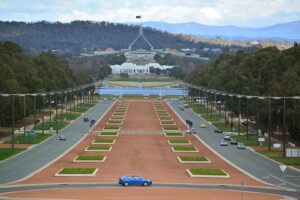
Up Late
In a recent episode of his late-night show, host Ben Harvey delivered a sharp critique of the ongoing debate surrounding the Goods and Services Tax (GST) in Australia. During the segment, Harvey highlighted what he termed “rank hypocrisy” from key political figures, specifically targeting the Prime Minister and the Western Australia (WA) Premier. His commentary aimed to dismantle the populist arguments presented by various parties involved in the contentious discussion about GST distribution.
Harvey’s segment comes at a time when the GST debate has intensified, with various stakeholders arguing over who should receive a larger share of the tax revenues. The GST, a significant source of government income, has been a focal point for discussions on equitable financial distribution among states. Harvey’s analysis provided viewers with a critical perspective on the motivations of those involved in the debate.
In his commentary, Harvey noted that both the Prime Minister and the WA Premier have made statements that he believes are misleading. He urged viewers to scrutinize these claims, suggesting that they often serve political agendas rather than the interests of the public. By calling out what he described as “bullsh*t,” Harvey aimed to encourage a more honest dialogue about the implications of GST allocation.
The show’s segment featured clips of speeches from both leaders, illustrating their contrasting positions on the issue. Harvey pointed out that while both politicians advocate for fairness in GST distribution, their actions do not always align with their words. This dissonance, he argued, is a key factor in the public’s growing skepticism about political leaders’ sincerity.
As the debate continues, the ramifications of GST distribution are significant for various regions. Harvey highlighted the economic implications for Western Australia, which has often felt disadvantaged in the allocation of GST funds. His commentary resonates with many residents who have expressed frustration over perceived inequities in how tax revenues are shared across the country.
The ongoing GST discourse is not merely an abstract policy issue; it has real-world consequences for citizens, particularly those in states like Western Australia. By addressing these critical points in his show, Harvey aims to foster a more informed public debate, urging viewers to consider the broader impact of tax policies on their lives.
The GST discussion has seen various proposals and counter-proposals, reflecting the complexity of the issue. Harvey’s segment adds to the growing conversation about tax reform in Australia, challenging audiences to think critically about the motivations behind political rhetoric. As viewers tune in, they are encouraged to reflect on the implications of these debates and how they influence local communities.
In summary, Ben Harvey effectively leveraged his platform to shine a light on the GST debate, advocating for transparency and accountability among political leaders. His approach underscores the importance of critical thinking in public discourse, especially in matters that affect citizens’ financial well-being. As the GST debate unfolds, it remains to be seen how these discussions will shape future policies and public sentiment across Australia.







